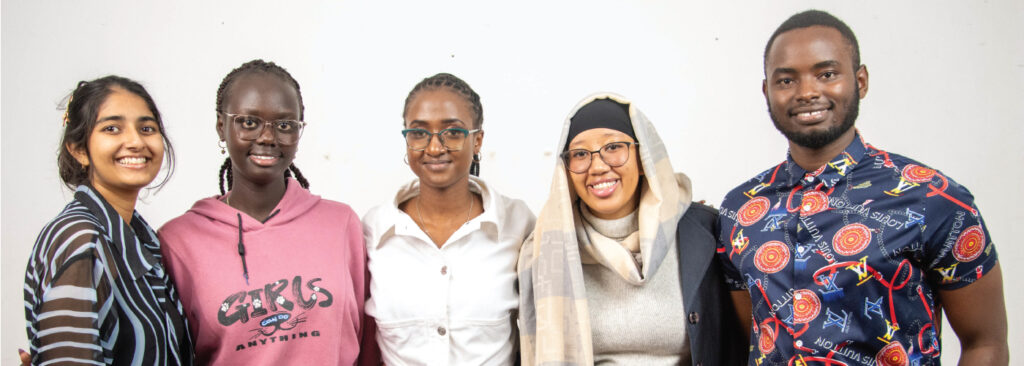Philosophy of the School
Just like a river flows from the source to the next larger water body, the education process in various fields of study is endless. The field of International Relations and Diplomacy (IRD) is not an exemption. The discipline is as old as humanity with its formation drawing from some of the remarkable global human events, such as, wars and conflicts. It therefore, forms a self-reinforcing educational system, forming an ecosystem of students, faculty, stakeholders and members of the public, in a mutual web of co-existence. As a teaching and research faculty, the school of IRD recognizes the changing global environment. In the recent past, there has been a growing criticism of the two extreme schools of thought governing the field of International Relations- realism and liberalism. Seemingly, the centralist viewpoint is holding grip and continuous to influence the current and future scholarship and policy in IR. Hence, the school of IRD believes that the notion, ‘three-legged middle-ground’, forms a plausible body of knowledge worth scholarly interrogation.
This viewpoint is anchored on the idea that, ‘regional integration (with reference to Africa and the entire global south), is a function of international politics, and that states seek to establish order in the international system by building stronger regional bodies from below.’ In this sense, states at the regional level form an ‘integrated system’, where a type of order does exist, based on shared localities, cultural norms, geographical proximity, technological/infrastructural shareability, economic and social interactivities and behaviours. As such, our graduates are instrumental in advancing the ‘three-legged middle ground’ thinking by being alive to the fact that, solving issues affecting the international system cannot be complete without incorporating the cultures, norms and realities from the global south. At the same time, global peace cannot be achieved by denouncing intercultural interdependence. With this conscious understanding of the inseparability of the international system, graduates from the school of IRD, attain knowledge, skills and competencies, that enable them to contribute to their ability to become more committed to the global peace for sustainable development. And by so doing, they acquire the mind set and capability needed to make appropriate moral and intellectual choices and decisions that will affect, not only their immediate surrounding, but the entire global system.
Goals of the School
In this way the programme shall achieve its ultimate goal of producing innovative and skilled diplomats, scholars, policy makers and administrators who can serve effectively in government institutions, Inter-governmental Agencies, Non-governmental Organizations, International Institutions and other relevant organizations. Concurrently, the programme also focuses on providing a holistic education that equips learners with the capacity to realize their individual full potential and to develop social and moral values which guide their actions through life.
Expected Learning Outcomes
Competencies and Skills
Competencies and Skills
Diplomatic Negotiation and Mediation
Tools of Diplomacy
Project Development & Management
Scenario Building, Simulations and Modelling
Collaboration with all Formal and Informal Stakeholders
Rules of Ethics and Professional Conduct of a Diplomat
Design Thinking Tools in Resolving Conflict
Career Prospects
Diplomatic Negotiators and Mediators
Career Diplomats
Project Developers and Managers
Business Case Designers
Conflict Model and Prediction Experts
International Business Analysts
Management of Foreign Service & Embassies
International Organizations
Multinational Corporations
Project officers in NGOs
Early Warning Analysists
Civilian Peacekeepers
Hospitality Industry
Foreign Language Translation




